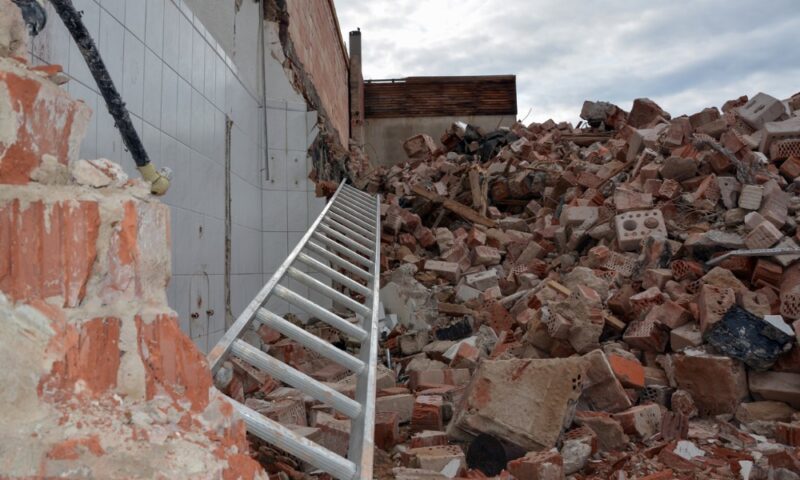
Turkish-American Association Coordinates Response to Earthquake
Like many organizations, the American Turkish Association of Washington, DC, is raising funds for recent quake victims. Thanks to its location, it’s playing an advocacy role as well.
On February 7, a 7.8-magnitude earthquake struck Turkey and Syria that has decimated multiple cities there. As of Monday, more than 36,000 people have reportedly died in the disaster, with tens of thousands more injured and displaced.
For the 25-member board of the American Turkish Association of Washington, DC (ATADC), the quake was devastating news. But it wasn’t an unfamiliar story, and the organization—the oldest Turkish-American association in the United States—already had an established network in place that allowed it to respond quickly to natural disasters.
“Turkey sits on multiple fault lines and is prone to earthquakes,” said Gizem Salcigil White, an ATADC board member and past president. “We’d come together as a community to raise funds for earthquake victims before, so when we heard the news, we had a meeting right away, formed a relief committee, and launched a fundraiser.”
Within a week, ATADC has raised more than $175,000, part of a larger effort by Turkish Philanthropy Funds that has raised more than $7.3 million so far. While that’s ongoing, White said, ATADC is also in contact with nongovernmental organizations about needs on the ground in terms of donated goods, coordinating with Turkish Airlines to collect and ship items.
In the long term, shelter is what’s most needed, because there are so many people who have just lost everything.
ATADC Board Member Gizem Salcigil White
Needs have constantly changed, White said, due to weather and medical conditions. “At first, we were focusing more on winter coats, boots, pants, sleeping bags. Now we’re more focused on power banks, flashlights, pocket warmers, portable warmers, and things like that.”
As that work continues, the association has also been working through the diplomatic and political channels in Washington, DC, to direct attention to the crises and secure future aid for the region’s recovery efforts. In the past week, ATADC has taken part in meetings at the Turkish embassy and the U.S. Chamber of Commerce, and met with leaders such as Jeff Flake, the U.S. ambassador to Turkey.
The message in all cases, White said, is that the earthquake will be a crisis long after it has faded from the news cycle. “In the long term, shelter is what’s most needed, because there are so many people who have just lost everything,” she said. “They’ve lost their loved ones. They lost their parents. There’s so many children there who are displaced. It’s a big human tragedy, one of the deadliest natural disasters of the century.”
On Friday, White and ATADC organized a vigil near the White House to honor the victims of the earthquake. The location, of course, was intended to encourage the United States to turn its attention on the devastation.
“In 1999, President Bill Clinton visited Turkey after an earthquake there,” White said. “We are trying to reach out to the White House and President Biden to do the same, because this is much worse than that earthquake. The survivors have a long recovery ahead. They need mental support, they need financial support, they need basic support. We think the U.S. can do much more, and we’ll be working to engage White House officials, congressional offices, and the media for as long as possible.”
(Serhii Bezrukyi/iStock/Getty Images)






Comments